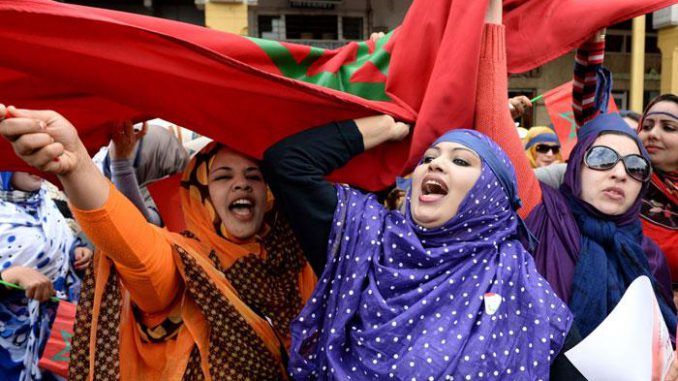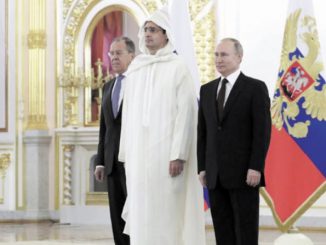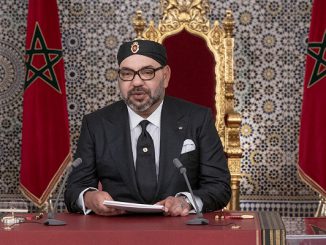
Morocco has gradually made considerable efforts to promote women’s rights, thus reiterating its determination to honor its international commitments by introducing institutional and legislative measures aimed at improving parity and equal opportunities between the two sexes and promoting women’s representation in the various institutions.
In addition to acceding to and ratifying international human rights instruments, the Kingdom is committed to achieve equality between women and men, as affirmed by article 19 of the Constitution and the provisions of articles 31 and 92, with a view to the economic, political and social empowerment of Moroccan women.
The speech of His Majesty King Mohammed VI, on the occasion of the 66th anniversary of the revolution of the King and the People, conveyed a clear and unmistakable message for a more balanced and equal exploitation of agricultural land and the adoption of a “fairer” and “more balanced” development model.
Thus, in August 2019, the Chamber of Councilors unanimously adopted the three bills relating to the Soulaliyate communities. This legislative leap was followed by the election of the first woman in the history of the soulalyte communities in Morocco, Rabia Assoul Bent Abd Essalam Ben Bouslam, now a “naiba” (representative) of the soulalyte community.
For the president of the Rabat office of the Democratic Association of Moroccan Women (ADFM), Amina Lotfi, Morocco has made progress since the 2000s, including the reform of the Family Code, the Nationality Code and some “adjustments” of the Penal Code, in addition to the launch of several national strategies, including that of combating violence against women and the institutionalization of gender equality in the civil service.
The Constitution of 2011 was a turning point for the anchoring of human rights and equality among citizens, which consolidated these advances, since the Kingdom now has a legislative framework of reference for the reform of all laws, she said.
However, nine years after the implementation of the Constitution, there is still a long way to go in terms of “effective equality”, noted Ms. Lotfi, stressing that despite the passage of Law 79.14 establishing the Authority for Parity and the Fight against All Forms of Discrimination (APALD), “it is still not operational”.
Referring to the Kingdom’s commitment to the Sustainable Development Goals (SDOs), the activist called for an in-depth reform of the laws, within the framework of a “global vision” and by adopting a non-discriminatory philosophy.
For Ms. Lotfi, the achievement of these SDOs can only be achieved through public policies and global strategies for the promotion of equality declined in sectoral programs, the establishment of an information system with gender-specific indicators and the development of policies that meet the needs of women and finally, the promotion of a culture of equality with an inclusive public policy as part of a comprehensive strategy, continuous and adapted to different targets and populations.
Following the example of the international community, Morocco celebrates on 8 March, International Women’s Day, under the theme “I am of the Generation Equality: Stand up for women’s rights”. which coincides with UN Women’s new multi-generational campaign, Generation Equality, marking the 25th anniversary of the Beijing Declaration and Platform for Action.
For UN Women, the year 2020 provides an unprecedented opportunity to inspire global action to achieve gender equality and human rights for all women and girls.




Be the first to comment